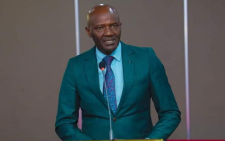Why society must prepare the young for leadership

I read Petronilla Serebwa’s article entitled, why incompetent get promoted and the competent are let go, in The Standard, February, 19, 2025, with a lot of interest.
Serebwa, a Human Resources specialist, observed that a significant number of employers promote some of their staff to managerial and leadership positions based on the technical performance when they ought not to.
“Such promotions take place even though the competencies of such employees are based on their technical prowess and not on their ability to lead and manage others,” the writer noted.
She attributed the phenomenon to the Peter Principle-a situation where an otherwise competent person is moved to a higher position in an organization and suddenly finds himself unable to effectively perform the duties in that position.
This is the crux of the matter. There is a big distinction between technical competence and managerial or leadership competence.
The lower and middle ranks in an organisation mainly require technical skills or abilities. Recruitment into these ranks is based on basic or technical skills people—often young people possess—thanks to their education and or training.
In general, therefore, technical abilities are more important at these levels. Employees at these levels work under the supervision or guidance of a person, more often, a person who previously worked at that level before elevation.
Positions higher than these may require either more depth or breadth of the technical skills and a little more of managerial and leadership skills. It therefore means that to qualify for these higher levels, an employee must have not just technical, but managerial skills.
Supervisory positions require both technical competence and managerial skills. Hence the role of training of employees due for promotions on leadership levels, the writer rightly specified in the article.
However, with the greatest possible respect for the writer, training in itself, doesn’t mean that the people an employer is elevating is fit to manage or lead others.
Real preparation for management and leadership depends on several things.
Firstly, the basic education experiences the employees had, prior to higher education and training sufficiently developed their minds and character. Quality education successfully develops in the learners the mental and character orientation that provides the basis for training into a given technical field.
Secondly, post-secondary studies the employees had were rigorous, coherent and practical. That whatever the studies each of them had, they helped them gain important qualities of mind that lay the foundations needed for productive and innovative lives. These qualities are rigour, critical reasoning, problem solving, efficacy, imagination, and creativity and communications skills.
Additionally, the studies should also have helped the employees gain some ethical capacities, respect for and, in the final analysis, understanding, and appreciation for human diversity.
Thirdly, the employers or its leadership should have nurtured a strong organisational culture. The culture should have clear vision, purpose and values and which celebrates individuality, originality, risk taking, innovation and entrepreneurship.
Fourthly, the organisations should be those which allow people in management or leadership positions to exercise management and leadership role appropriate to those positions. Some organisations promote people to management and leadership positions but expect them to undertake substantially similar work they did one or two ranks below.
Fifthly, the institution must have a strong induction programme to methodically and seamlessly socialize new employees, whether they join the organisation at the lower, middle or top ranks of the organisation.
Sixthly, the training programmes aimed at preparing employees for supervisory, management and leadership positions should be rigorous and coherent.
Leadership is about influence. It is about rallying significant others behind a cause. It is about creating causes and rallying people around them.
Some of the greatest leaders had a rigorous and coherent leadership education and training. it didn’t just happen. They include Martin Luther King, Ronald Reagan, Margaret Thatcher, Nelson Mandela, former President Mwai Kibaki, John Michuki, the late Simon Nyachae.
The writer is Communication Specialist















